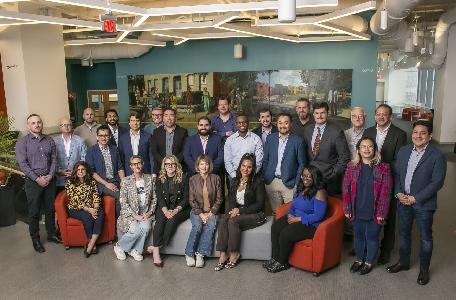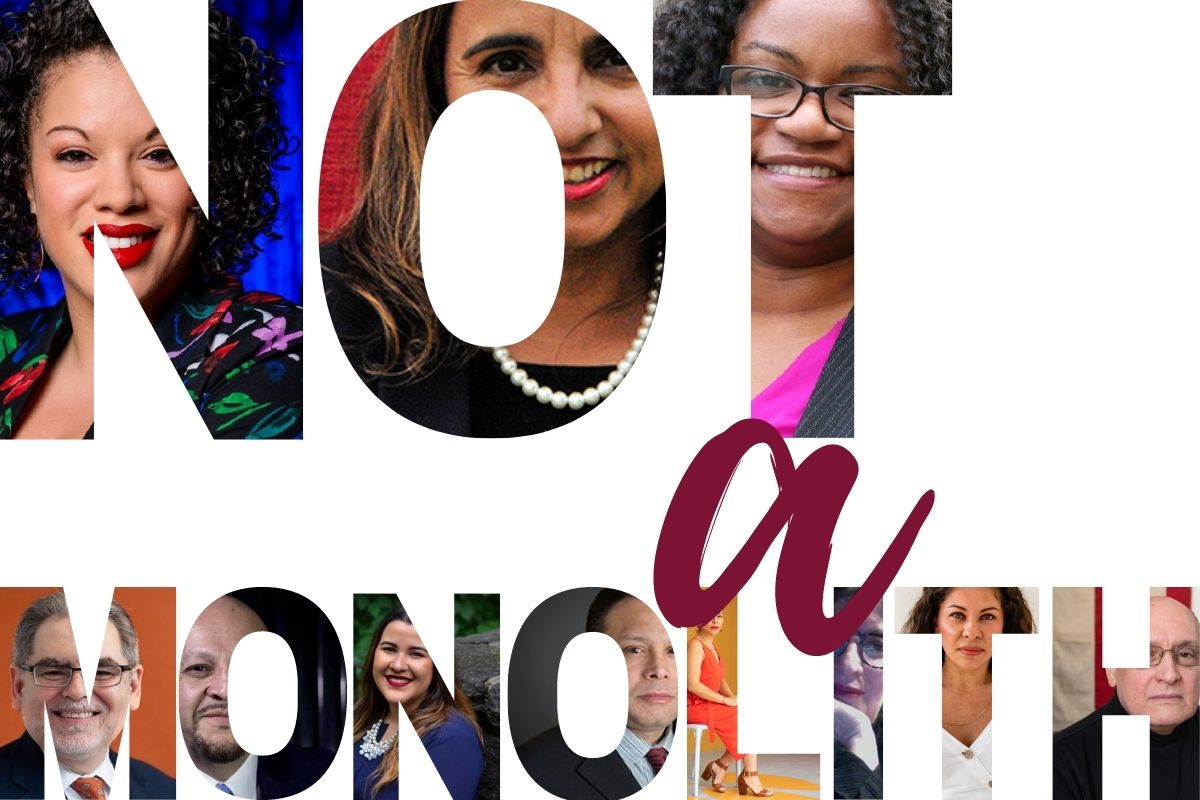Suddenly this month every biz and org is just like Ed Sheeran having a south of the border moment with Cardi B and Camila Cabello.
You can’t totally hate that song — or Hispanic Heritage Month for that matter — because there’s something catchy and celebratory about it, and it manages to shine light on deserving Latinx talents. But on the other hand, you can’t quite forgive its stereotypic and tokenizing ways, either …
We’re about midway through the annual lip-service-and-marketing-fest that is supposed to mark the many Latinx contributions to the fabric of life in the U.S., and I’m already deeply irritated.
For this Latina news editor (one of very few in Philly), it’s what happens during non-Hispanic Heritage months that really deserves attention. That’s the utterly inadequate investment in Latinx neighborhoods and communities; the serious lack of Latinx political representation throughout the region; and the fact that our experiences seem always to be either flattened into a monolith, or wholly erased from view.
Latinxs comprise 15% of Philadelphia’s population; 27% of the population in Norristown (Montgomery County) and 62% of the population in Avondale (Chester County). As I like to say, aquí estamos, y no nos vamos — we’re here and we’re not going anywhere.
Thankfully, there are a number of Latinx nonprofit and civic leaders in the Philadelphia area who throw elbows every day to make space for more Latinxs at the table. They fight injustices, offer solutions, build community, amplify voices and cultivate incredible creativity year-round.
We asked nine of those Latinx leaders for their responses to four questions we think everyone should hear, this month in particular:
- From your vantage point, what is the most significant challenge the Latinxs you know, love and work with are confronting in our region right now?
- What do you wish people better understood?
- What needs to happen next?
- How is your work/activism/advocacy part of the solution to that challenge?
Here are a few of their responses. For the rest, head on over to Generocity.
###
‘Our biggest obstacle is access’
Rafael Collazo, executive director of UnidosUS Action Fund
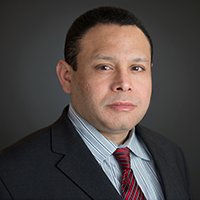
Rafael Collazo. (Courtesy photo)
Our biggest obstacle is access: access to accurate information about community issues, politics and educational and economic opportunities. There needs to be a much greater investment by the public and private sectors to disseminate culturally competent messaging that Latinos can use to better their own lives.
Most of us have little appreciation for the power we have to impact the lives of others. Our unique stories and talents change the world everyday; we need to help our community see that within themselves.
We need to continue to leverage our collective power. I think about how the Puerto Rican/Latino community came together after Hurricane Maria in 2017 and generated a historic relief effort. When we work together, we can do anything. From an electoral perspective, an estimated 15 million Latinos voted in the 2020 election and a million Latinos are going to turn 18 years of age each year for the foreseeable future. The potential to become the electoral force in national politics is real and we must own that power to forge our own future.
Obviously, civic engagement is key. The work to naturalize new citizens, register people to vote, provide substantive voter education and mobilize people to the polls is constant. Most importantly, UnidosUS Action Fund and other advocacy organizations must focus on organizing work grounded in people power and giving Latinos the tools to raise their own voices.
‘Let’s first start by not erasing us from American history’
Amy Eusebio, executive director of the City of Philadelphia’s Office of Immigrant Affairs

Amy Eusebio. (Courtesy photo)
While reflecting on these questions about Hispanic Heritage Month I came to realize that I had no emotional attachment to this celebration of my people and our contributions to the United States of America, and that I had no significant memories of celebrating this in my entire K-12 education.
Now don’t get me wrong, I had a high quality education while growing up in Northern NJ that celebrated multiculturalism in my highly diverse middle and high schools, but I don’t recall any significant learning about Latinos. I recall two instances in my K-12 education where the content I was learning reflected something from my reality: a history class where I learned President Roosevelt was supportive of Rafael Leonidas Trujillo who would go on to become a 30-year dictator on my parents’ island; and again in high school in a World Literature class learning the beauty of magical realism.
For my immigrant parents and their siblings, they definitely had never heard of a thing called “Hispanic Heritage Month” and it still means very little, if anything, to all of them. And every time people did mention Latinos in mainstream media, the images were always people with fair skin or caramel complexion with wavy to curly hair, and that is not my version of Latinidad. After all, in my youth I conceived myself and my family as “Black people who happened to speak Spanish.”
If we really want to celebrate the contributions of the diverse people of Latina America in the United States, let’s first start by not erasing us from American history and teaching accurate history to all of this nation’s children. Our people have and continue to contribute greatly to this country and this has been the case since the border crossed the Mexicans on the West Coast. We should take every opportunity to counter the narratives that Latino immigrants and their children are lazy and here to suck up American resources or jobs.
When one in four children in the US is Latino, we definitely need to update our history books and classes. Latino and immigrant families similar to mine collectively give so much more than we will ever be able to collect. And guess what, most of my people — campesinos, jibaros, country folks — are OK with that. The only thing we expect is an opportunity to be treated equally under the law and to stop propagating false narratives about our worth and value.
We are hard working people whether our stories are written or not. We are also here even when your images of Latinidad do not match our racial reality and wide diversity.
For those private companies and government leaders that really want to celebrate the contributions of Hispanic or Latino Americans, I ask you, how do you ensure that policies and programs are applicable to all residents regardless of immigration status, English language abilities, race and class? We all need to stop performing inclusion and making meaningful material changes to demonstrate inclusion. Any company promoting their commitment to Hispanic Heritage Month I would ask the following:
- What are your hiring practices?
- Do you offer thriving wages to your employees?
- With whom do you contract?
- Who do you fund?
- With whom do you partner?
Essentially, are you actually in relationship with my community, listening to our concerns and addressing our requests before they become demands? We are America. We built this country and continue to build this country so that we can continue to be the land of opportunity, not just for us, but for all people coming to seek a chance to thrive.
In my work, I see part of my responsibility is to hold the American government accountable to what it has promoted that it stands for over so many decades. Latino Americanos such as myself are eager to help make this country a more perfect union for all.
‘Latino population growth and development is integral to the region’s growth’
Will Gonzalez, executive director of Ceiba

Will Gonzalez. (Courtesy photo)
The most significant challenge Latinos in Philadelphia are confronting is poverty. Latinos are the poorest community in a deep poverty city and COVID-19 made things worse. Latinos have the highest poverty rate in Philadelphia: 37%. Philadelphia’s Latino poverty rate is the highest among the nation’s most populous cities and its poorest large cities. Poverty emanates issues of trauma, violence, health, injustice, inequity, etc.
Latino population growth and development is integral to the region’s growth. But for the Latino community, Pennsylvania would have lost more than one seat in the US Congress. Pennsylvania’s population only grew 2.4% between 2010 and 2020 or by about 300,000 people. In the same period, the states’s Hispanic population grew 45.8%, or by about 330,000 people. Growth in the Hispanic population offset the declines in population of other groups. The Latino share of total population change in Pennsylvania was 110%. In Philadelphia, the total population of the city grew 5%, between 2010 and 2020. During the same period, the Hispanic population of Philadelphia grew by 27%.
Our region must address issues that affect Latinos to fully thrive and prosper. Addressing social justice issues is complex and contentious. We can’t let those who want to preserve the status quo divide communities who seek equity. We need the full humanity of people of color involved in this fight.
‘Many of our community members have an entrepreneurial spirit’
Nelly Jimenez-Arevalo, executive director and CEO of ACLAMO
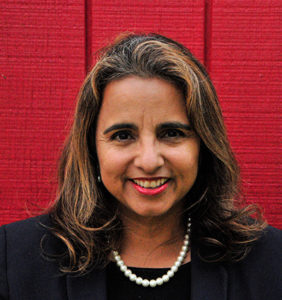
Nelly Jimenez-Arevalo. (Courtesy photo)
Multiple socioeconomic factors disproportionately impact our community and as a result lead to several challenges. The top four include food insecurity, access to stable housing, lack of funding on education, and health care. Many of our community members do not have access to vehicles and live in food desert areas; many of our Latino families are rent-burdened and face eviction, live in overcrowded homes, but yet do not qualify under traditional “homeless” definitions. The lack of healthcare access has been made worse due to COVID-19 and lack of health coverage and sick times tied to jobs have impacted our community’s ability to withstand the impact of the pandemic.
I would like to highlight the positive economic impact of our communities and our earning and tax contributions to our country. Many of our community members have an entrepreneurial spirit, creating jobs and vibrant communities all around. Latino communities are not homogenous. We are diverse in cultures, races and origins, and hold our own unique perspectives and gifts to bring to the table. What works in one community, may not work for another. This is why we need to identify community leaders that are able to bring messages of hope and optimism to their own communities in a language they understand, care and trust.
Read more from Latinx leadersJoin the conversation!
Find news, events, jobs and people who share your interests on Technical.ly's open community Slack

Philly daily roundup: A better coffee supply chain; Philly Tech Week returns; Apply to Pennovation Accelerator
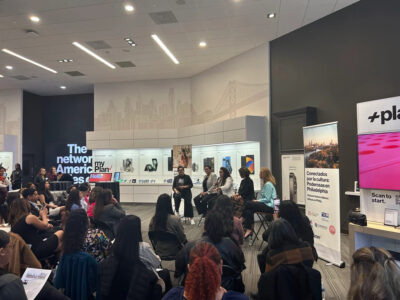
Philly daily roundup: Startups want office culture; New Venture Lab cohort; Penn Med's new AI leader

Will the life sciences dethrone software as the king of technology?
